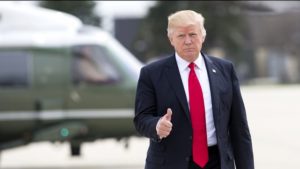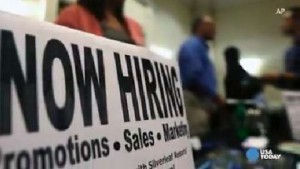The U.S. Labor Department chimed in this morning with a stellar jobs report for July.
The nation added 209,000 payroll jobs. The unemployment rate fell from 4.4 percent to 4.3 percent. It’s good news. The economy is on the move, as it has been for some time now.
Donald J. Trump, as expected, took credit for the great jobs report. Yes, the president should be thrilled and happy with them. I welcome the good news as much as he does.
He said he’s “only just begun” to bring back more American jobs.
My question, though, is this: What, precisely, has the president done to generate the stellar jobs numbers?
Legislative accomplishment? None. We haven’t overhauled the tax system. Congress hasn’t acted on the president’s infrastructure revitalization plan. It hasn’t tossed out and replaced the Affordable Care Act.
The U.S. Environmental Protection Agency has rolled back many of regulations enacted in prior administrations, but have those actions produced — by themselves — these big job numbers? Umm. No.
Take credit, Mr. President, if you wish. You are entitled to all the credit you deserve — which is some, but nearly as much as you seem to suggest.

